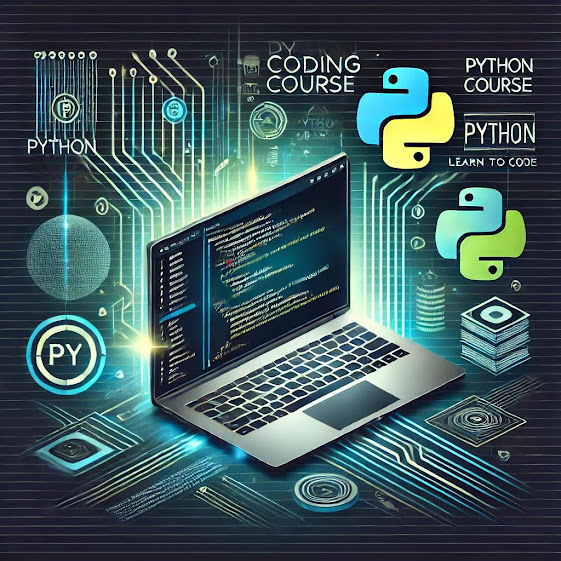Fundamentals of Python: Your 2025 Guide to Starting a Tech Career
Fundamentals of Python: Your 2025 Guide to Starting a Tech Career
Why Python Is Still the #1 Choice in 2025
Python continues to dominate the tech world because of its readability, wide range of applications, and large developer community. Whether you're a student, a working professional, or someone switching careers, Python helps you break into tech with ease.
Here’s why Python remains a top choice:
Easy to learn: Python syntax is clear and simple, similar to English.
Versatile: It supports multiple domains like web development, automation, AI, and more.
High demand: Python is one of the most sought-after skills by employers.
Strong ecosystem: Thousands of libraries and frameworks simplify development.
What Are the Fundamentals of Python?
Before you start building complex apps, mastering the fundamental of Python is essential. These are the basic concepts that every developer must understand, regardless of their field.
1. Variables and Data Types
Variables in Python store data, and Python supports several data types such as:
Integers: Whole numbers like
10Floats: Decimal numbers like
3.14Strings: Text like
"Hello"Booleans:
TrueorFalseCollections: Lists, tuples, sets, and dictionaries
Example: python
Understanding these data types is crucial for managing data effectively.
2. Operators
Python uses operators to perform operations on variables and values. These include:
Arithmetic Operators:
+,-,*,/Comparison Operators:
==,!=,>,<Logical Operators:
and,or,not
Example :python
Operators help define conditions and actions within your code.
3. Conditional Statements
These statements allow your program to make decisions based on certain conditions.
Example: python
Conditional logic is used in almost every application—from login systems to online shopping carts.
4. Loops
Loops let you repeat tasks efficiently, saving time and code.
For Loop: Used for iterating over a sequence.
While Loop: Runs as long as a condition is true.
Example: python
You’ll use loops to process data, generate outputs, and automate tasks.
5. Functions
Functions are reusable blocks of code that perform specific tasks. They make your code modular and easier to manage.
Example: python
Functions become especially useful as you build larger applications.
6. Lists and Dictionaries
These data structures help you store and manage multiple values.
Lists: Ordered and changeable
Dictionaries: Key-value pairs
Example: python
They are essential for storing user input, configurations, and other types of data.
7. File Handling
Python allows you to read from and write to files, making it useful for data storage and logging.
Example: Python
Understanding file handling is important for working with external data and documents.
Career Opportunities After Learning Python Fundamentals
Once you’ve mastered the basics, you can pursue various career paths in tech. Here are a few options:
🔹 Python Developer
Build web apps using frameworks like Django and Flask. Work on APIs, backend services, and system tools.
🔹 Data Analyst
Use libraries like pandas and matplotlib to clean and analyze data. This role is perfect if you enjoy working with numbers and insights.
🔹 Machine Learning Engineer
After learning Python fundamentals, you can explore AI tools like TensorFlow or PyTorch to create predictive models.
🔹 Automation Engineer
Write scripts to automate tasks like report generation, data entry, or file management.
🔹 Cybersecurity Professional
Use Python to analyze logs, detect vulnerabilities, and create security tools.
Tools and Platforms to Learn Python in 2025
With so many resources available today, learning Python is easier than ever.
Online Courses: Coursera, Udemy, freeCodeCamp
Interactive Platforms: Codecademy, W3Schools, HackerRank
AI Tools: Use ChatGPT to get instant code explanations and fixes
Practice Websites: LeetCode, Codewars, and Replit for hands-on experience
Pro Tips for Python Beginners
Practice Daily: Coding is a skill. The more you practice, the better you become.
Start Projects Early: Build small projects like a calculator, to-do list, or quiz game.
Join Communities: Reddit, Stack Overflow, and Discord groups offer peer support.
Ask Questions: Don’t hesitate to seek help—most programmers started where you are.
Stay Consistent: A few lines of code every day add up over time.
Final Thoughts
Python is more than just a beginner-friendly language—it’s a stepping stone to some of the most in-demand careers in tech today. By learning the fundamental of Python, you set yourself up for success in fields like web development, data science, automation, and beyond.
In 2025, the tech industry continues to grow, and companies actively seek professionals with Python skills. So if you're ready to start your journey, there's no better time than now.
Master the fundamentals. Build real projects. And unlock your future in tech.



Comments
Post a Comment